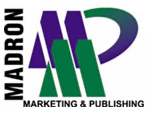You’ve made the decision to hire a freelance copywriter…and you’re ready to hand over the keys to your business and let the writer produce a blockbuster new promotion.
To help the copywriter get started, you’ve likely given him or her a few basics: access to your web site…a copy of an old sales letter that failed miserably…and the promise to “answer any questions you might have.”
But is that enough?
Not if you’re looking for the writer to deliver a promotion that actually works.
Listen…as the marketing manager – or business owner – YOU are the one who knows the most about your product or service.
You know what the product’s strengths and weaknesses are…you know what the most common customer questions or objections are…and you understand which product features are the most important in driving a sale.
So it’s critical that you share this information with your copywriter before he or she begins to write.
Don’t assume that the writer you’ve hired knows everything there is to know about YOUR product. In fact, many writers – myself included – prefer that you assume they know nothing at all about your product or the market as a whole.
Of course…this isn’t true – but having the one true expert explain the product as if they were talking to someone completely new to the idea is a great way to get information.
And let me be clear – I’m not suggesting that the writer shouldn’t do his or her own research during the writing process. But I AM suggesting that the writer would be greatly helped with as much product-specific information from the marketing manager as possible.
What follows is a brief checklist of things you should always try to give your writer – before beginning any new project.
- What are your goals for this project? Let the writer know if this is a simple test against the control as opposed to a test without a control. Or if this is a lead-generation effort, what type of returns are you looking for? How are you measuring success? And what are the most important metrics you’ll be tracking?
- What are you selling? For how much? And what comes with it? This sounds simple, but it’s important to be as specific as possible. An experienced writer may be able to spot a “hidden gem” of a bonus report in an otherwise ordinary stack. Your writer may also be able to identify an important pricing component that had previously been ignored. So don’t just assume that your copywriter will “throw in” the standard offer at the end of a promotion – provide as much detail about what you’re selling before the first word has been written.
- Who is your target audience and what motivates them to buy? How would you describe your typical buyer? Providing any demographic data you have on your customers could help the copywriter “get into the head” of your prospect to figure out what motivates your prospect. What is his or her biggest need? What is he or she most afraid of? Answering those questions for your copywriter will help the writer figure out how to relate those answers to your product and incorporate them into the promotion.
- How do you want people to respond? In this case, we’re talking about the call-to-action. Are you looking for someone to call an 800 number? Click on a link for more information? How are you measuring and defining success for this promotion? If you have the full ordering process up and running, encourage your copywriter to go through the process to see what the phone operators are saying…or what happens when an order link is clicked. This will help the writer understand exactly what he needs to motivate the prospect to do in order for your promotion to succeed.
- Who will this promotion be sent to? If you’re planning to mail this promotion to rented lists, let the writer know what some of those lists and selections look like. If you’re only mailing to your own house lists, let the writer know about how you built your list…and what you know about the way these prospects and customers have performed for you.
- What has worked previously for this product? Assuming your promotion isn’t a launch promotion, you should share past controls with your writer. And if your promotion is a launch, help your copywriter find successful promotions for similar products. Surely you know what your competitors have been mailing and even if you don’t want the writer to mimic those existing successful promotions, they will at least provide a roadmap for how success can be achieved. (Bonus – One thing I always ask clients for is an example of a recent “flop.” It helps me to see for myself what themes and ideas didn’t work for a particular product so I can learn from those mistakes.)
- What are the most common questions and/or objections prospects have about your product? This can be an enormous help. Most copywriters spend some time thinking of possible objections a prospect might have – and addressing those potential objections in the copy. But if you have any information – even if it’s just anecdotal – about what prospects are actually objecting to…this could be a huge help to a writer. At the same time, if your phone reps have any information about the most common questions people ask when ordering – even if those questions aren’t objections – that can also help the copywriter understand what prospects are thinking and answer those questions ahead of time.
When it comes to putting together a successful promotion, you get out of it what you put into it: If you provide your copywriter with as much relevant information and research as possible…you’ll help make sure that writer delivers a strong promotion.
Jody Madron is a results-oriented copywriter with more than 30 years of breakthrough marketing experience. To learn how Jody can deliver results-boosting copy — ahead of your deadline — visit www.MadronMarketing.com.

